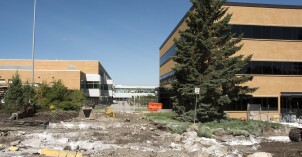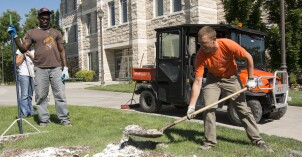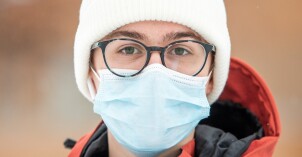Emergencies happen on their own time. We do not always know what to plan for or when so we plan for the worst and hope for the best. We follow the advice given to us by the Prophets of old and today, "If ye are prepared, ye shall not fear." (D&C 38:3)
Ready America
The Department of Homeland Security has made many publications available to the public at no charge. They are available in a downloadable, pdf, format at Ready.gov (opens in new window). They are for individuals, families, and businesses. All contain very good information that could save your life someday.
Preparing for any Emergency
The Center for Disease Control has recently updated its site for Emergency Preparedness and Response to include Health and Safety Concerns for All Disasters. It is well worth the time to visit this site often.
Preparing for a Pandemic
Many people are concerned about what they can and should do to prepare for the most recent potential medical emergency threatening the world today. The Avian Flu. Though the timeline of this threat to our safety is not known we can and should prepare for it. These preparations consist of being informed of what it is and what you need to do. There are several sites that can be accessed to help you to know what is happening. The main web site is: www.flu.gov .
BYU-Idaho is preparing by stockpiling a few materials that we normally did not consider for other emergency situations, i.e. N95 masks. We encourage all students, faculty, staff and visitors to this site, to prepare by putting together a 72 or 96 hour kit that can be accessed in the event of any emergency. A student kit need only be the bare essentials and can cost less than $20. More information on preparing for a Pandemic may be found on our Pandemic Web Page.
Other Emergency Planning and Preparation for the University Community
Building Coordinators
In the event of an emergency, there are people on each floor of the campus buildings that have received instructions on what to do. These people are called "Building Coordinators". A list of those that have accepted this service is found here: Building Coordinators.
Department Planning
Effective emergency plans depend on simple planning and training. Employees will support safety programs when supervisors emphasize their value. BYU Idaho departments must have written plans in place that cover all types of disasters. Successful plans include:
- Escape procedures
- Pre- and post-evacuation procedures
- Reporting procedures
- Personnel emergency call lists
All BYU-Idaho employees must be trained in your department safety plan. Ensure employees know the safety plan when new staff are hired, or when new equipment, materials, or processes are put in place or revised. Practice drills from time to time will help employees stay up to date with the department safety plan.
Department Recovery
To assist the various departments in developing a disaster recovery plan, a Disaster Recovery Template has been developed.
Emergency Response Evaluation
To see you and your department are ready for a disaster, an evaluation form has been developed. To find out how well you are doing, send a copy to the safety office for review.
Fire Prevention Policy
This Fire Prevention Plan is intended to provide pertinent information to students and employees of the university to promote the reduction of the possibility of fires and to specify the type of equipment to use in case of fire.
Mitigation
Life safety improvement projects are identified during audits, surveys, inspections, and incident responses conducted, primarily by the Safety Office, Facilities Management, the University Safety Committee, President's Council, and individual departments. For more information on this topic, go Mitigation webpage.



